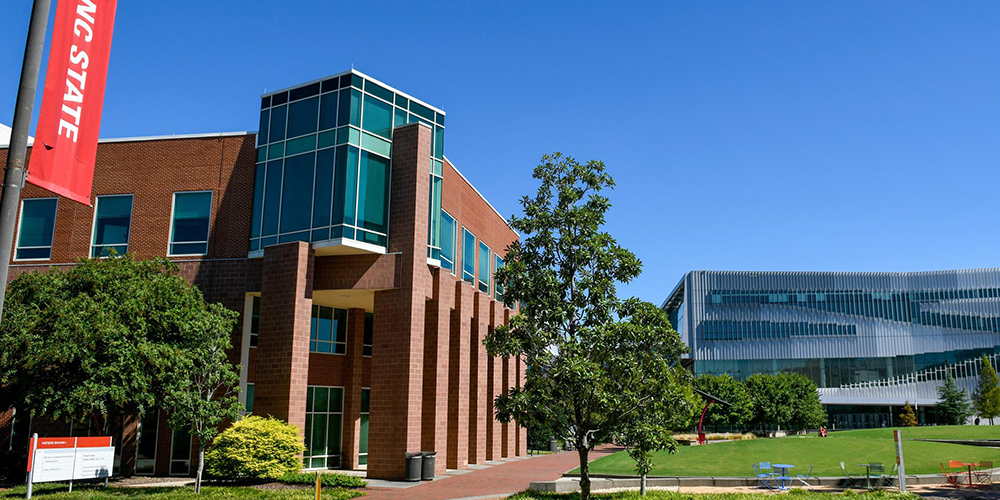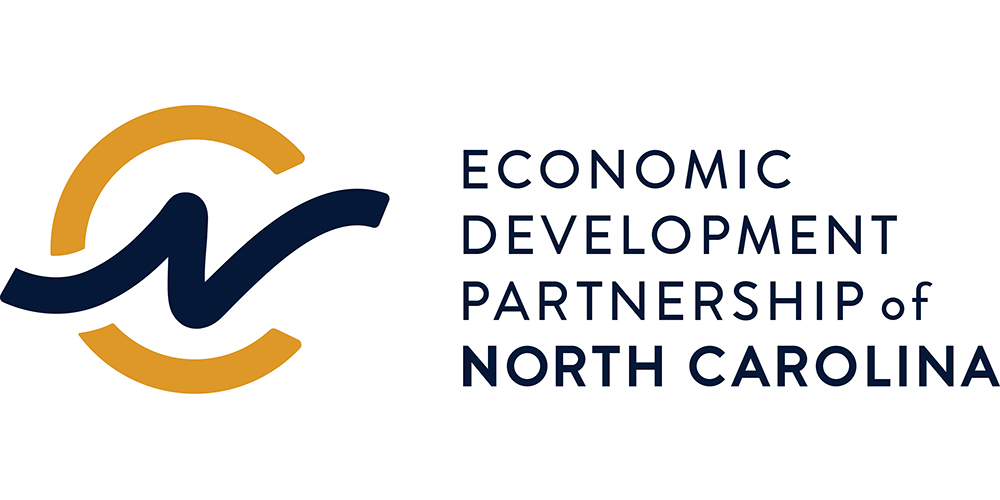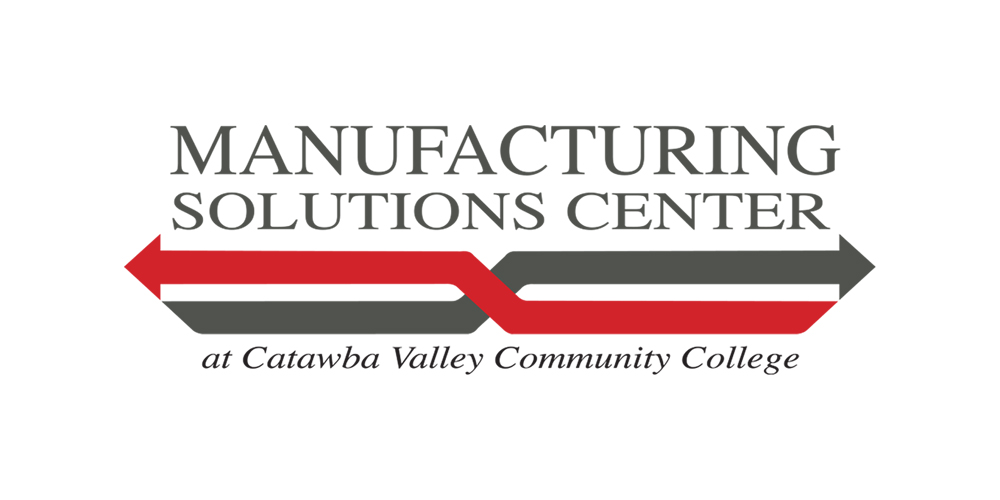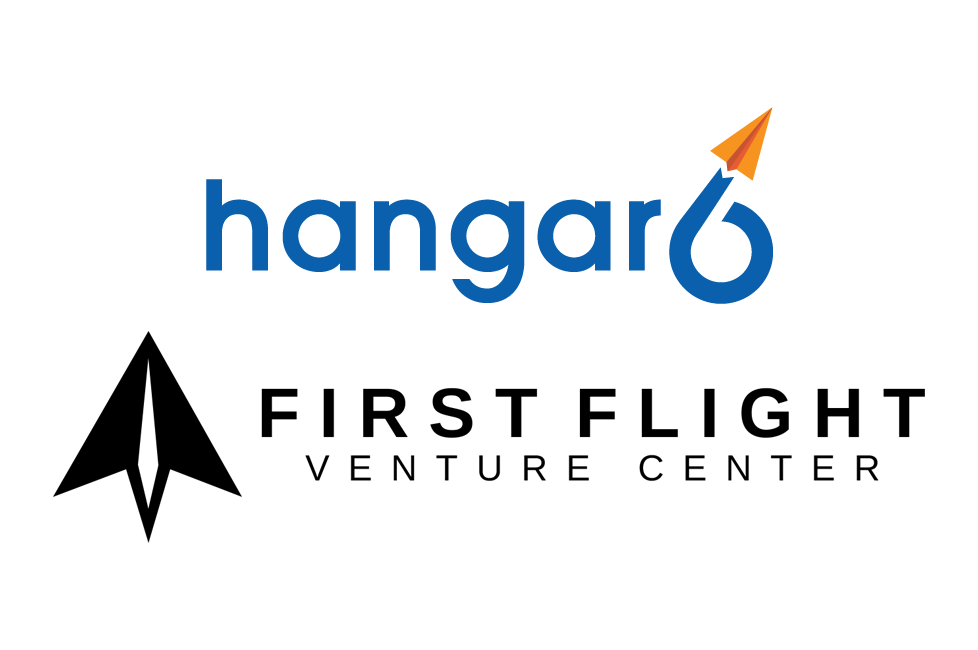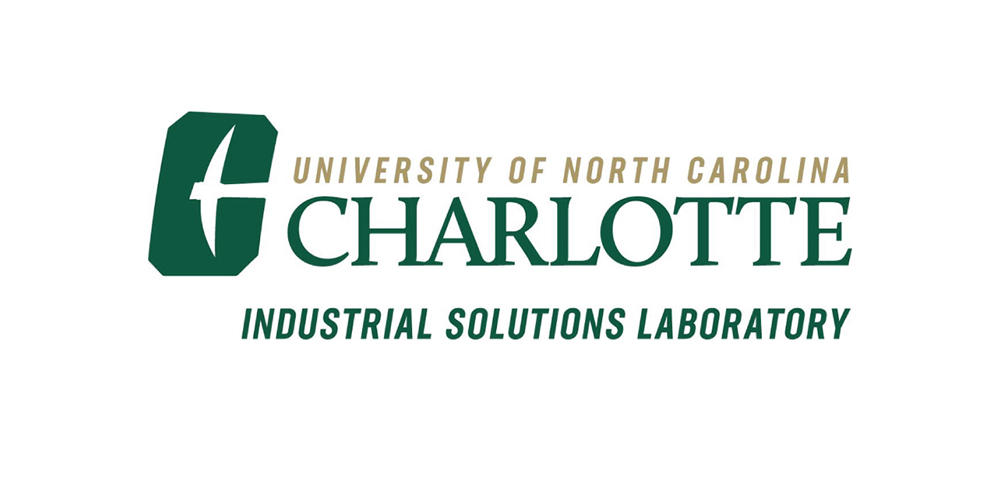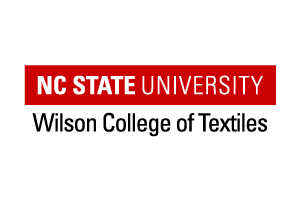 Melissa Sharp is the Zeis Textiles Extension for Economic Development (ZTE) associate director at the NC State University Wilson College of Textiles. Sharp has been a part of the organization for over ten years. Sharp is the principal investigator on a Wilson College of Textiles nearshore and co-production project designed to strengthen textile supply chains in Honduras. Sharp also serves as deputy CEO research lead on the NSF Engines grant, .
Melissa Sharp is the Zeis Textiles Extension for Economic Development (ZTE) associate director at the NC State University Wilson College of Textiles. Sharp has been a part of the organization for over ten years. Sharp is the principal investigator on a Wilson College of Textiles nearshore and co-production project designed to strengthen textile supply chains in Honduras. Sharp also serves as deputy CEO research lead on the NSF Engines grant, .Sharp oversees the Zeis Textile educational programs and is involved in industry research projects, development of the Textile Connect database and manages strategic partnerships with industry trade groups like the Southern Textile Association, Advanced Textile Association, AFFOA, and The Industrial Commons.
Nearshoring and Co-Production Strengthens the US Textile Industry Supply Chain
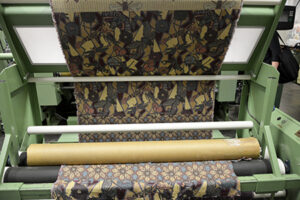 The Wilson College of Textiles secured funding through a USAID grant to expand its presence into Honduras and Central America, primarily focusing on enhancing the region’s supply chain. This initiative includes implementing a nearshore and co-production model with Central America, aligning with the college’s goal of being more responsive to consumer needs and establishing resilient supply chains. Nearshoring, a strategic move to bring production closer to the final consumer, is at the forefront of this approach. By leveraging trade agreements such as the CAFTA-DR and USMCA (formerly NAFTA), companies can benefit from reduced costs and logistical efficiencies, making this model an attractive option for enhancing the textile industry in the region.
The Wilson College of Textiles secured funding through a USAID grant to expand its presence into Honduras and Central America, primarily focusing on enhancing the region’s supply chain. This initiative includes implementing a nearshore and co-production model with Central America, aligning with the college’s goal of being more responsive to consumer needs and establishing resilient supply chains. Nearshoring, a strategic move to bring production closer to the final consumer, is at the forefront of this approach. By leveraging trade agreements such as the CAFTA-DR and USMCA (formerly NAFTA), companies can benefit from reduced costs and logistical efficiencies, making this model an attractive option for enhancing the textile industry in the region.
“We are collaborating with North Carolina companies that are establishing manufacturing operations in Honduras to capitalize on the trade agreements in the region and utilize the abundant workforce,” stated Sharp. The Northern Triangle countries—Honduras, Guatemala, and El Salvador—have a significant population of individuals in the prime working age range, from 18 to 45. This demographic is characterized by its youthfulness, with approximately 70% of people in Honduras (similar to Guatemala and El Salvador) having never been employed in the formal economy. In contrast, the United States faces a labor shortage of about 20 to 25%. Given advantageous trade agreements and proximity to consumers in North America, establishing manufacturing capabilities in Honduras emerges as a strategic decision.
Read more about the project
The North Carolina Textile Innovation and Sustainability Engine
 The North Carolina Textile Innovation and Sustainability Engine (NCTISE), led by The Industrial Commons (TIC) and its partners, including the NC State University Wilson College of Textiles has been awarded up to $160M over 10 years by the U.S. National Science Foundation. NCTISE aims to advance sustainability in the textile sector across North Carolina, upstate South Carolina, eastern Tennessee, and southwestern Virginia. The initiative focuses on research, development, and workforce training to disrupt the $96B textile industry. Core partners include NC State University, Wilson College of Textiles, and several community colleges. The program also collaborates with government agencies and private sector companies. With a potential NSF investment of nearly $1.6 billion, NCTISE represents one of the largest investments in regional economic development. The initiative aligns with bipartisan priorities outlined in the “CHIPS and Science Act of 2022” and aims to position the U.S. textile sector as a global leader in sustainability and innovation.
The North Carolina Textile Innovation and Sustainability Engine (NCTISE), led by The Industrial Commons (TIC) and its partners, including the NC State University Wilson College of Textiles has been awarded up to $160M over 10 years by the U.S. National Science Foundation. NCTISE aims to advance sustainability in the textile sector across North Carolina, upstate South Carolina, eastern Tennessee, and southwestern Virginia. The initiative focuses on research, development, and workforce training to disrupt the $96B textile industry. Core partners include NC State University, Wilson College of Textiles, and several community colleges. The program also collaborates with government agencies and private sector companies. With a potential NSF investment of nearly $1.6 billion, NCTISE represents one of the largest investments in regional economic development. The initiative aligns with bipartisan priorities outlined in the “CHIPS and Science Act of 2022” and aims to position the U.S. textile sector as a global leader in sustainability and innovation.
Zeis Educational Programs
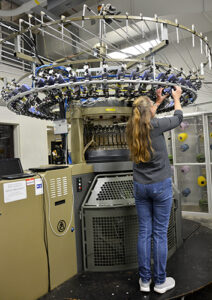 The Zeis Textiles Extension for Economic Development (ZTE) at the NC State University Wilson College of Textiles educational programs provide training and certification in textiles and programs for improvement and innovation.
The Zeis Textiles Extension for Economic Development (ZTE) at the NC State University Wilson College of Textiles educational programs provide training and certification in textiles and programs for improvement and innovation.
ZTE’s professional education programs provide various continuing education opportunities for industry professionals by offering an extensive catalog of seminars, conferences and executive education courses taught by ZTE Extension Specialists, Wilson College of Textiles faculty, and industry representatives. Our instructors are skilled facilitators, practitioners, and leaders with over 20 years of experience. In addition to being educators, each of our instructors continues to be involved daily in projects across multiple industries.
The Impact of Textile Connect Database as an Industry Resource
Developed over a decade ago, the Textile Connect database is a way for the Wilson College of Textiles to provide a sourcing database highlighting companies primarily located in the southeastern region of the United States. The program was initially through a partnership between the Department of Commerce in North Carolina and the Department of Commerce in South Carolina.
During the pandemic, when organizations were rushing to find gowns, masks and other PPE, it was time to focus on expanding the database. The College received funding through the NC State University Industry Expansion Solutions Defense Industry Initiative: North Carolina Defense Manufacturing Community Support Program (DMCSP) to increase the site’s usability. The financial support allowed the Wilson College of Textiles to modernize infrastructure and increase the searchability and granularity of the information on the site, making it a more robust resource for our textile companies. Sharp stated, “Because of the Textile Connect database, we were fielding many calls looking for help with sourcing.”
Since overhauling the database, Textile Connect has attracted over 5,000 participants in North America and 25 other countries. Textile Connect now provides valuable resources for individuals to quickly locate their suppliers and map their locations, a feature that allows users to visualize the geographic distribution of these companies. This tool enables users to assess travel distances and potential logistical challenges, helping them understand the supply chain and streamline operations effectively.
Multiple TexLabs at ZTE Accommodate Large and Small Scale
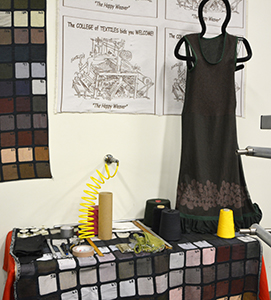 ZTE manages several TexLabs critical to the textile and apparel industry: Dyeing and Finishing, Knitting, Yarn Spinning, Weaving and Flex Factory Prototyping. Other industry resources include physical testing services performed in ZTE Labs, the Analytical Services Laboratory, the Textile Protection And Comfort Center (TPACC), clothing protection and comfort research, and The Nonwovens Institute (NWI) for engineered fabrics. These labs enable faculty, graduate, undergraduate, and industry research. Industry services include prototype development, material evaluation, process development and evaluation, and pilot production and analytical services. “ZTE works with more than 300 companies a year, providing services, fabrication, testing and educational classes,” said Sharp.
ZTE manages several TexLabs critical to the textile and apparel industry: Dyeing and Finishing, Knitting, Yarn Spinning, Weaving and Flex Factory Prototyping. Other industry resources include physical testing services performed in ZTE Labs, the Analytical Services Laboratory, the Textile Protection And Comfort Center (TPACC), clothing protection and comfort research, and The Nonwovens Institute (NWI) for engineered fabrics. These labs enable faculty, graduate, undergraduate, and industry research. Industry services include prototype development, material evaluation, process development and evaluation, and pilot production and analytical services. “ZTE works with more than 300 companies a year, providing services, fabrication, testing and educational classes,” said Sharp.
The Dyeing and Finishing Pilot Plant offers sample and production-size machinery, featuring over 40 machines for processing fibers, yarns, fabrics and garment preparation, including high-quality chemical finishing services.
The Knitting Laboratory provides circular knitting on various machines, including Shima Seiki flat knitting machines. It also offers fabric and sample development tailored to clients’ needs.
The Rieter Short Staple Yarn Laboratory utilizes state-of-the-art machinery for spinning fibers less than 65 mm into various types of yarn, offering services from process evaluation to optimizing machine settings and speeds.
The Springs Weaving Laboratory has sample warpers, looms with various shedding systems and two CCI sample looms for research purposes.
The Flex Factory Prototyping Lab accelerates product development timelines and speed to market with cutting-edge textile processing and precision cut and sewing equipment, catering to entrepreneurs and established companies.
The college partnered with Manual Woodworkers and Weavers, an on-demand print manufacturer in Hendersonville, North Carolina, to create an authentic tartan plaid throw blanket and lambswool plaid cape to support our Flex Factory and its initiatives. The Flex Factory is also a “maker space” for students to give them manufacturing and prototyping experience before graduation.
Analytics Services Laboratory
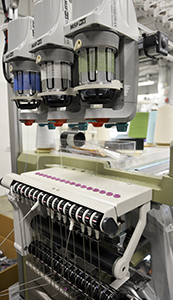 The Analytical Services Lab is part of the Department of Textile Engineering, Chemistry, and Science at the Wilson College of Textiles at NC State University. Testing methods include Thermal Analysis, Spectroscopy, Chromatography, Contact Angle, and Electron Microscopy (SEM) with energy-dispersive X-ray spectroscopy (EDS). The on-staff laboratory manager conducts testing, client interaction, and communication.
The Analytical Services Lab is part of the Department of Textile Engineering, Chemistry, and Science at the Wilson College of Textiles at NC State University. Testing methods include Thermal Analysis, Spectroscopy, Chromatography, Contact Angle, and Electron Microscopy (SEM) with energy-dispersive X-ray spectroscopy (EDS). The on-staff laboratory manager conducts testing, client interaction, and communication.
The Textile Protection And Comfort Center (TPACC)
TPACC provides research, testing and evaluation of the Dimensional Changes of Fabrics after Home Laundering:comfort and protective performance of textile materials, garments and ensemble systems all in one location. Testing includes:
The Nonwoven Institute provides a comprehensive suite of evaluation methods and tests for fabrics:
- Kawabata Evaluation System: Measures mechanical properties related to fabric hand.
- Qmax Warm / Cool Touch Test: Evaluates surface sensations upon skin contact.
- Guarded Sweating Hot Plate Instrumentation: Assesses heat and moisture transport, calculating insulation values and Total Heat Loss.
- Moisture Vapor Transmission Rate: Similar to ASTM E96.
- Liquid Moisture Management: Includes Vertical Wicking, Gravimetric Absorbency, Moisture Management, and Drying Time tests.
- Gravimetric Absorbency Testing System (GATS): Preferred method for measuring absorption properties.
- Moisture Management Tester: AATCC Test Method 195.
- Drying Time: Determines material drying speed.
- Subjective Evaluation of Fabric Hand: AATCC Evaluation Procedure 5.
- AATCC 135.
- Sweating Manikin Tests: Demonstrates clothing breathability.
- Sweating Thermal Hand: Evaluates heat and evaporative resistance of gloves.
- Glove Hand Function Tests: Assess grip and dexterity using ASTM F 2010 Standard Test Method.
- Physiological Wear Test: Collects data on vital signs and comfort during heat stress assessment.
- Thermal Imaging: Records heat loss and retention.
- Full Ensemble Comfort: Comprehensive garment assessment in varying climatic conditions.
The Nonwovens Institute (NWI)
The Nonwovens Institute (NWI) at North Carolina State University’s Centennial Campus is a dynamic hub for innovation and collaboration in the field of nonwoven materials. As a consortium, NWI brings together stakeholders from across the nonwovens value chain, including industry players, government agencies, and academic researchers.
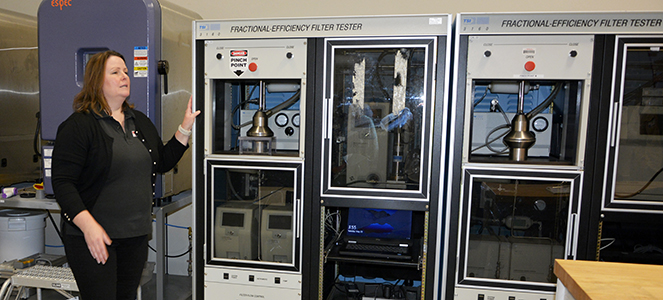 At NWI, an “Open Innovation” approach is embraced, fostering an environment where ideas can flow freely and partnerships can flourish. This ethos of openness and collaboration enables NWI to tackle a wide range of challenges across various sectors, from healthcare to environmental sustainability.
At NWI, an “Open Innovation” approach is embraced, fostering an environment where ideas can flow freely and partnerships can flourish. This ethos of openness and collaboration enables NWI to tackle a wide range of challenges across various sectors, from healthcare to environmental sustainability.
Through its collaborative model, NWI is driving forward the development of next-generation nonwoven solutions to address mission-critical challenges. By leveraging the expertise and resources of its diverse network, NWI is pushing the boundaries of what is possible in the field of nonwovens, paving the way for innovative solutions that have real-world impact.
“Textiles are incredibly versatile, encompassing various applications across industries. From aerospace and automotive to biomedical engineering, fashion, interior design, architecture, and even landscape design, textiles play a crucial role”
— Melissa Sharp, Associate Director, Zeis Textiles Extension
Driving the Future of Textiles
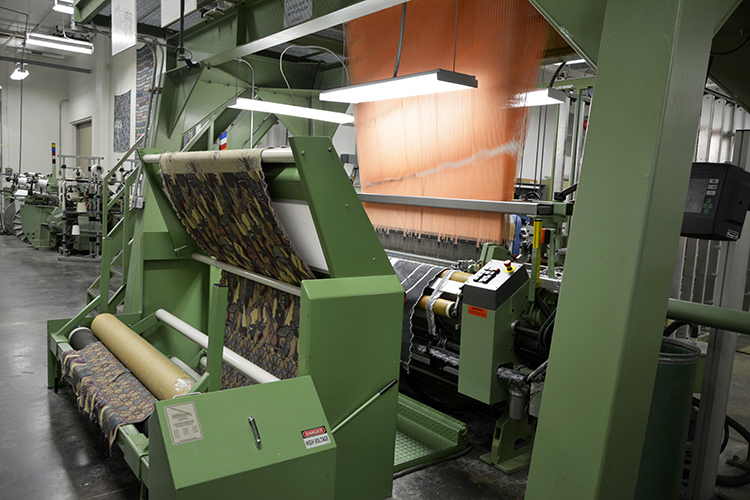
“Textiles are far from a dying industry; they are thriving and evolving. The misconception of decline often stems from outdated practices. Today, there is a shift toward advanced textiles, focusing on small-batch production and customization. This shift is particularly significant when viewed through a sustainability lens,” Sharp affirmed. The traditional model of creating large inventory quantities is unsustainable, as evidenced by the staggering statistic that 30% of current retail clothing never reaches a consumer or store, ending up in landfills or burn piles. This cycle poses significant ecological challenges. The natural progression is towards an on-demand manufacturing model, reducing inventory and waste while aligning with sustainable practices.
Sharp anticipates substantial changes in the textile industry in the coming years, particularly in two key technology areas rapidly advancing toward commercial viability. The first is textile electronics, with a surge of innovation in incorporating connectivity into garments and textiles. However, challenges remain, particularly with power supplies. The second growth area is enabling technologies supporting these advancements, such as better recycling technologies and alternative materials. Sharp asserted, “This shift towards sustainability and circularity in textiles is poised to make a significant impact. A common challenge in textile recycling is the downgrading of materials during the recycling process, which is a broader issue across recycling sectors. As these technologies mature, we can expect to see a shift towards consumer-ready products and a more sustainable approach to textile production.”
“Textiles are incredibly versatile, encompassing various applications across industries. From aerospace and automotive to biomedical engineering, fashion, interior design, architecture, and landscape design, textiles play a crucial role,” Sharp expressed, “They protect our firefighters, first responders, and medical professionals and are integral to holding our airplanes together. Virtually every industry benefits from textiles in some way. What’s often overlooked is that textiles extend into our bodies with implantable medical devices and contribute to protecting the planet. This breadth of impact truly defines the significance of the textile industry.”

